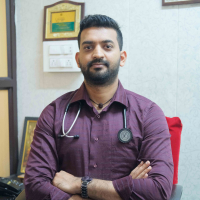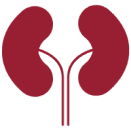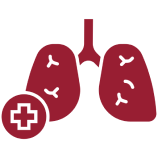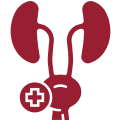

Book An Appointment
We're here for you.
Call us at
+91-6262-9999-43
Amar Hospital, Mohali, Punjab
+91-6262-9999-43
Amar Hospital, Mohali, Punjab
Specialities
We offer complete healthcare solutions for your health concerns
Specialities
We offer complete healthcare solutions for your health concerns
Specialities
We offer complete healthcare solutions for your health concerns
Specialities
We offer complete healthcare solutions for your health concerns
Specialities
We offer complete healthcare solutions for your health concerns
Specialities
We offer complete healthcare solutions for your health concerns
Specialities
We offer complete healthcare solutions for your health concerns
Internal Medicine And Critical Care
General and Lap. Surgery
Anaesthesiology
Oncologist
Orthopedics & Joint Replacement
OBS & Gynaecology
Opthalmology
Neurology
Nephrology
Cardiology
Gaestrology
Pulmonology
Radiology
Pathology
Paediatrics
ENT
Microbiology
Urology
Dermatology & Venereology
Neurosurgery
Pyhsiotherapy
Dental
Psychiatry
Comprehensive Anesthesiology Services at Amar Hospital
Anaesthesiology is the discipline of medicine that helps achieve, maintain, and reverse an induced state of unconsciousness, a condition of total/partial absence of responsiveness so that surgical procedures can be performed on a patient. Anaesthesia is given to patients based on the sort of operation they are having and the level of pain treatment they require. Anaesthesiology includes the procedures and techniques for reviving patients after surgery.
At Amar Hospital, we pride ourselves on our comprehensive anesthesiology services. Our team of expert anesthesiologists is dedicated to providing safe and effective anesthesia care to patients of all ages.
Trust the Experts at Amar Hospital for Anesthesiology Care
The Department of Anesthesiology at Amar Hospital, Mohali, employs modern anesthetic delivery procedures, with safety and patient focus as the primary goals. With one of the most skilled Anesthesiologists in Mohali on staff, we aim to provide outstanding patient care, proper pain treatment, and the best post-surgical recovery possible. This includes everything from pre-surgical evaluations preparing patients for surgery to recovery reviving regimens and pain treatment.
Before arriving at the anesthetic and pain-relief strategy, we, as the best Anesthesiology Hospital in Mohali, Punjab, investigate the patient’s pre-existing illnesses, the current surgical environment, and the post-surgery expectations. A thorough assessment of the patient’s readiness for anesthetic administration is performed to prevent excessive scenarios, and any issues are anticipated.
When it comes to your anesthesia care, you want to trust the experts. At Amar Hospital, our team of highly trained anesthesiologists is dedicated to providing safe and effective anesthesia care to patients of all ages.
Our anesthesiologists are experts in the field of anesthesia care and undergo extensive training and education to stay up-to-date on the latest advancements in the field. They work closely with your surgeon and healthcare team to ensure that you receive personalized and comprehensive care.
A Range of Anesthesia Services to Meet Your Needs
OVERVIEW
DR RIMPLE, MBBS, MD (ANAESTHESIA)
Anesthesiology is that branch of medical science that deals with the relief of pain of surgical patients before, during and after the surgery. This department is responsible for looking after surgical procedures, cardiac arrest cases, pain management and surgery-related issues. The experts of this department aim at providing patients with high degree care, keeping their safety and satisfaction the primary focus..
Local Anesthesia
General Anesthesia
Regional Anesthesia
Epidural Anesthesia
Spinal Anesthesia
Sedation
Facilities & Services:
Prioritizing Patient Safety and Comfort
At Amar Hospital, patient safety and comfort are our top priorities. Our anesthesiologists are highly experienced and undergo ongoing training to stay up-to-date on the latest advancements in anesthesia care. We work closely with surgeons, nurses, and other healthcare professionals to ensure that our patients receive personalized care throughout their procedure.
At Amar Hospital, Mohali, we strive to make all surgical operations painless and comfortable for all patients. The doctors in the anesthesia department are fully aware of this and remain devoted to it. We have one of the most experienced teams of Best Anesthesia Doctors working around the clock to give our patients superior anesthetic treatment.
We are committed to providing our patients with the best possible care, from the moment they walk through our doors to their safe and comfortable recovery. Our anesthesiologists use the latest technology and techniques to ensure that our patients receive the highest quality care.
If you are in need of anesthesiology services, trust the experts at Amar Hospital. Contact us today to schedule a consultation with one of our experienced anesthesiologists. We look forward to providing you with the care and comfort you deserve.
Our Doctors


Dr. Pankaj Gupta
He has more than 15 years of experience in the same field. And is qualified in MBBS, MD MEDICINE.

























